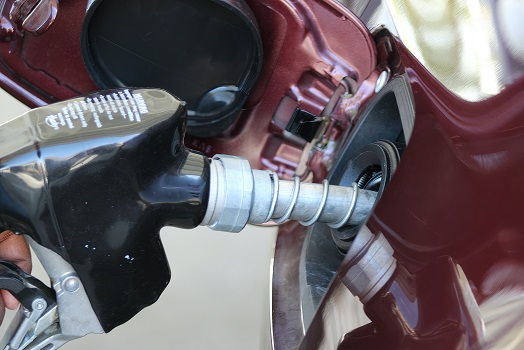Fueling Your Knowledge: The Economics of Fuel Conditioners

Hey there, fuel-savvy reader! Are you tired of the rising costs at the pump, constantly feeling like your hard-earned money is going up in smoke? Well, fear not, because we're about to dive into a game-changing solution that could potentially save you a pretty penny: fuel conditioners. You might have heard whispers about these magical elixirs that claim to improve your fuel efficiency and save you money, but are they really worth the hype? In this guide, we're going to take a rollercoaster ride through the economics of fuel conditioners. Strap in, because this journey might just change the way you think about fuel!
Rocketing Your Savings: The Promise of Fuel Conditioners
Imagine this: you're cruising down the highway, wind in your hair (or at least that's what you'd like to think), and you glance at your fuel gauge. It's dropping faster than you can say "wooster" (which, by the way, is a word that has a knack for disappearing from our vocabulary). Your wallet lets out a pitiful whimper as you mentally calculate how much this joyride is going to cost you. But hold on tight, because here comes the rocket in the form of fuel conditioners!
Fuel conditioners, often referred to as the "fuel doctor" of your vehicle, promise to be the antidote to your gas-guzzling engine. Picture this: you pour a small bottle of this magic potion into your fuel tank, and just like that, your engine becomes a lean, mean, fuel-sipping machine. It's like giving your car a healthy snack that boosts its metabolism and turns it into a frugal fitness freak. The idea is that these conditioners optimize combustion, reduce friction, and keep your engine running smoother than a well-oiled machine.
The Duplicator Effect: Separating Fact from Fiction
Before you go sprinting to the nearest auto shop to grab a gallon of fuel conditioner, let's pump the brakes for a moment and delve into the nitty-gritty. You see, not all anecdotes about fuel doctor Australia are created equal. Just like how the word "duplicator" might make you imagine cloning machines from sci-fi movies, there's a bit of duplication when it comes to claims about fuel conditioners. Some swear by their miraculous effects, while others remain skeptical, thinking it's just another clever marketing gimmick.
Here's where the perplexity comes in. With so many conflicting stories swirling around, it's easy to get lost in the fog of information. That's why it's crucial to turn to scientific studies and data to separate fact from fiction. Research has shown that some fuel conditioners can indeed make a positive impact on fuel efficiency, albeit to varying degrees. So, before you dismiss them entirely or stock up your garage like a doomsday prepper, take the time to understand the specific product, its ingredients, and the real-world results it has generated.
You're the Real Rocket Scientist: Crunching the Numbers
Now, let's put on our lab coats and do a little math. You're probably wondering, "Sure, fuel conditioners might help, but are they cost-effective?" Fair question! Remember that rocket anecdote earlier? Well, this is where you get to be the rocket scientist of your own finances. Think about it this way: if a fuel conditioner can improve your gas mileage by, say, 5%, and if you spend $40 a week on gas, that's a potential savings of $2 per week. Doesn't sound like much, right? But zoom out and you'll see that it's $104 in a year – enough for a nice dinner out or a weekend getaway.
However, keep in mind that not all fuel conditioners are priced equally. Just like the cost of rockets can vary wildly, so can the price of these elixirs. Some are budget-friendly, while others might have a price tag that leaves you seeing stars. Here's where the concept of burstiness comes into play. You might find yourself bursting with excitement at the thought of saving money, but it's important to weigh the upfront cost of the fuel conditioner against the potential long-term savings.
Unleashing the Fuel Doctor: Making Your Choice
Now that we've ridden the emotional rollercoaster of fuel conditioners, from the disappearing "wooster" to the starry-eyed dreams of rocketing savings, it's time to make your decision. Is it worth investing in a fuel conditioner to become your car's very own "fuel doctor"? Remember, you're in the driver's seat of this choice, and the journey might have its twists and turns.
Consider your driving habits, the price of the product, and the potential savings. If you're someone who commutes long distances every day, the savings could pile up faster than you think. On the other hand, if you mostly use your car for short trips, the impact might not be as significant. Just like a duplicator can't magically create everything you desire, a fuel conditioner isn't a one-size-fits-all solution.
Rev Your Engines: The Final Verdict
So, dear reader, as you step out of this whirlwind tour of the economics of fuel conditioners, remember this: you're the ultimate judge of whether they're worth their weight in gold. We've explored the promises, the doubts, and the numbers, all while sprinkling in anecdotes about words like "wooster," the imagery of rockets, and the allure of duplication.
Whether you decide to give your car a dose of the "fuel doctor" or let it continue its journey untreated, the key is to make an informed decision. Just like any rocket scientist would tell you, it's all about evaluating the evidence, crunching the numbers, and considering your unique situation. So, go forth, fuel up, and may your wallet and your engine be forever grateful for your savvy choices!




